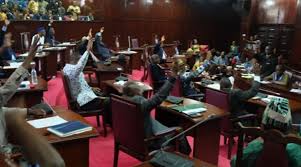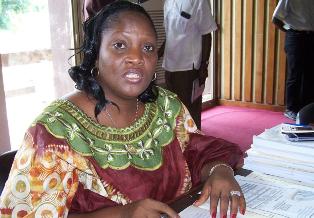Editorial: It is time for a new model of mineral development agreement in LIBERIA – the AML MDA amendment is the opportunity to change

Editorial: The current model of the Mineral Development Agreement (MDA) was formulated by a government coming out of a civil crisis with a team of local experts advised by a team of international experts with varied understanding of our country’s immediate, medium, and long-term needs; and in some cases, with varied interests and loyalties.
The 2005 Mittal Steel MDA was done under a Transitional Government. A year later, the first amendment was concluded in December 2006 and ratified in 2007. The Ellen Johnson-Sirleaf government boasted of a few major achievements, including what it thought was the retrieval of the Yekepa-Buchanan rail and the Buchanan port from Mittal Steel. The clause reads something like this:”…for the avoidance of doubt, the rail and port infrastructure shall not be the property of the concessionaire and shall remain the property of the Government of Liberia ..” It was discovered later that that clause was “breeze” as we say; because there were other constructive exclusionary clauses that gave Mittal Steel /ArcelorMittal (AML) total control over the rail and over around 2,000 acres of portland in Buchanan. The statutory regulator of ports, NPA, became a toothless bulldog at Buchanan, but not at the Freeport of Monrovia.
The government has actually subsidized AML by over US$100 million by awarding the company free use of portland when other mining companies like China Union and Western Cluster had to pay millions per annum for less than 100 acres of portland. (Portland goes for US$0.46 per sq. ft. or US$20,037.60 per acre). However, AML has always been “special”, since GoL is an equity partner, and sits on its Board.
The 2021 draft amendment is the third attempt to FIX the AML amendment. The second was an amendment of predominantly an amendment of the fiscal terms. In 2013, during the 2nd Amendment, the NPA and the Legislature attempted to amend the infrastructure clauses to give real ownership or better control of the port of Buchanan, and all other ports for that matter, to the NPA. AML fought that battle, defeated the Government of Liberia, and won. AML has always maintained total control of most of the portland in Buchanan without paying a dime to Government.
There are many reports on the economic and social benefits of mining companies like AML, but we have not come across any such report commissioned by GOL and prepared by a team of Liberian experts. Without discrediting the assessments by international groups, some of which are unbiased and highly professional, we believe that a study commissioned by the Government and undertaken by a team of Liberian experts would provide a better understanding of the level of effectiveness and feasibility of the current Model of MDA that Liberia is using. Liberian experts that participated in the negotiation or regulation of existing MDAs, must be available and willing to assist in this regard. And such studies could be implemented either by the National Bureau of Concession (NBC), the Ministry of Mines and Energy (MME), the National Investment Commission (NIC), or under the auspices of the Inter-Ministerial Concession Commission, (IMCC).
Some mineral development experts have suggested that perhaps such a study has not been conducted, because “the government lacks the finances” to do what is required to enhance its capacity to effectively regulate the mineral sector. Others argue that funds should be available for such capacity development studies because the Charles Taylor administration solved that problem by establishing the Mineral Development Fund, which has since 2000 been financed by up-front payments and royalties on production by mining companies 2000.
If these arguments are true, then perhaps there is a need for an audit of the Mineral Development Fund. The question is what has happened to funds allocated by statute to the Mineral Development Fund, and who controls those funds.
However, most importantly, Liberia must now review its model of Mineral Development Agreement and figure out whether or not it is still applicable to present circumstances and the needs of the State. The models of concessionaire-owned versus State-owned infrastructure must be studied for their respective values today. We should ask ourselves why the expansion of the Buchanan-Guinea rail corridor cannot be implemented by Government, when there are multiple users including, for sure, AML, Cavalla, Solway, Zali, HPX, and maybe one-day SIMANDOU? Why allow AML to invest at a high cost when GoL could attract low-cost financing to develop the infrastructure. AML can only justify its claim to exclusive control if AML is investing; but what if GoL was the one investing?
Considering Liberia’s mineral endowment, and the fact that mineral development is predominantly dependent on infrastructure development, why should Liberia not have a Mining Infrastructures Development Program with projects to make accessible and provide for the evacuation of iron ore from Putu, Wologizi, Mano River, and Bea Mountain. Why should Liberia continue to expect mining companies to borrow commercial money to build mining infrastructures when the Government of Liberia can simply use a fraction of the iron ore to raise the capital to build the rails and ports and let these infrastructures pay for themselves through user fees.
[bsa_pro_ad_space id=1]
Why don’t we learn from our experiences? Why can’t we start thinking in new boxes?
It is painful to observe between 2005 and 2022 Liberia may have learned very little from its experiences. Definitely, Liberia can be transformed within a short timeframe, if only we embrace the change that the majority of Liberians voted for in 2017. In the case of the amendment of the AML MDA, the concerns and cries of the people of Nimba County, the County most directly affected by AML’s operations, seem ignored as the Government proceeds to ratify the amended MDA.
However, it certainly is not too late for a policy decision to be made now, to improve the effectiveness of Liberia’s mineral regime. If Liberia fails to do the right thing right now, then God Bless the State.




















